Did not receive verification mail? Please confirm whether the mailbox is correct or not Re send mail
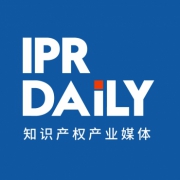
IPR Daily
- 2022-06-24 11:48:31
Germany's Top Three Patent Courts Show Greatest Growth in Case Numbers
SUMMARY
Case numbers in German courts have recently been on the decline. However, in 2021 - the second year of corona - several courts saw a significant increase. In particular, Düsseldorf, Mannheim and Munich had more new cases. German courts are thus significantly more attractive compared to patent courts in other European countries, with London, Paris, Milan and The Hague again seeing depleting case numbers.

Across Europe's major patent court locations, the number of newly-filed patent cases is falling.
An outlier is Germany, which is experiencing an increase - especially in its three major patent court locations of Düsseldorf, Mannheim and Munich ©RFBSIP/Sono Creative
Of the seven German regional courts hearing patent disputes, only the two courts in Frankfurt and Braunschweig saw fewer new patent suits filed in 2021 than in the previous year. All other courts managed a turnaround. In Düsseldorf, Mannheim, Munich, Hamburg and Nuremberg, more patent owners filed lawsuits arising from technical property rights than in 2020.
Düsseldorf and Mannheim Regional Courts recorded strong growth rates of 5% and 11%, respectively. This is following a decline in figures over 2020. However, leading the way in growth is Munich Regional Court, which counted 262 new lawsuits last year. This represents an increase of almost 30% and means the number of cases in Munich rose for the third year in a row.
In response to rising case numbers, Munich Regional Court set up the 44th Civil Chamber in 2021, which is its third chamber for patent disputes.
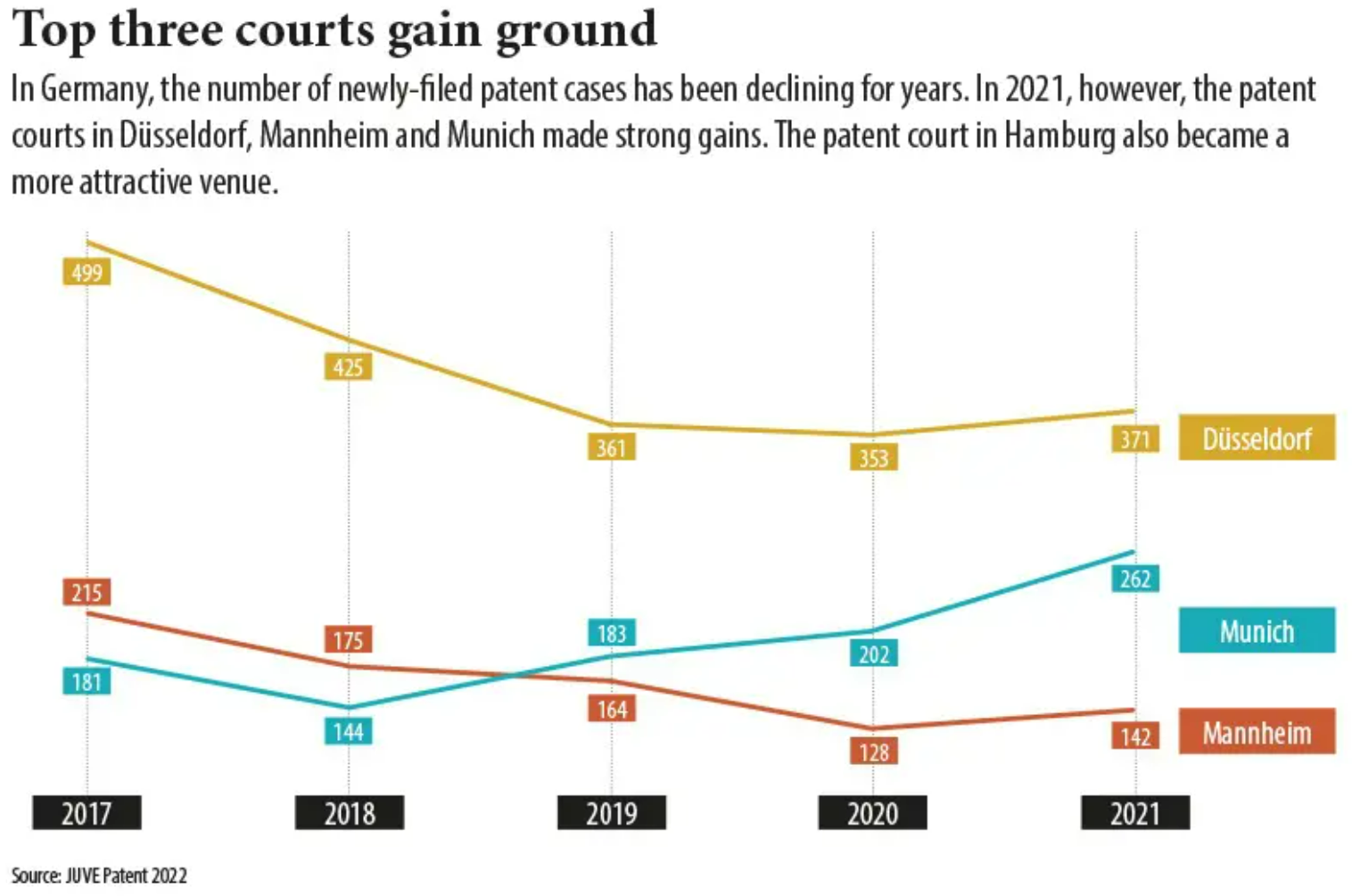
Overall, the seven German civil courts where patent disputes are heard saw 841 new patent infringement suits. This is 9.6% more than the previous year. However, in 2020, the numbers fell 9% to 714 new lawsuits, compared to 2019.
Düsseldorf, Mannheim and Munich regional court patent chambers account for the largest number of new patent suits in 2021 by far, with a combined number of 775. Thus, a large gap has emerged between Mannheim Regional Court in third place with 142 cases, and Hamburg in fourth place with 32 new cases. It appears the three major patent courts continue to outpace the others.
Closing the gap will be extremely difficult for the smaller courts, especially since the Unified Patent Court is expected to reshuffle the cards in Europe from 2023 onwards.
Mannheim and Munich catch up, but Düsseldorf is ahead
Düsseldorf is still top of the list when it comes to the most important German courts for patent cases. Here, patent owners filed a total of 371 new cases in 2021. In the same period, the three chambers of Düsseldorf Regional Court concluded 384 patent disputes, by judgment or otherwise.
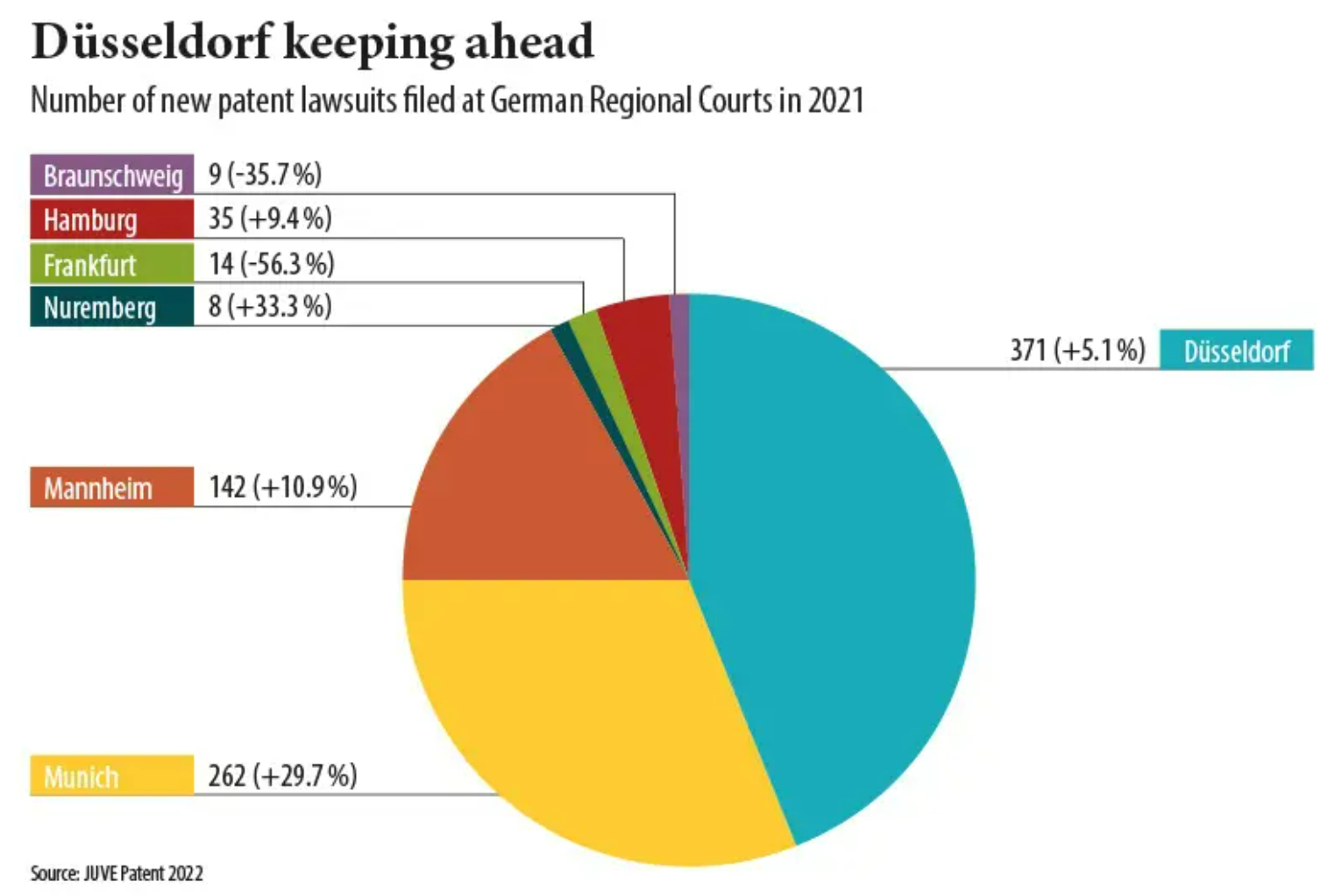
By contrast, Munich’s patent chambers together concluded a total of 49 cases by judgment in the calendar year 2021. A further 210 cases were resolved in other ways, such as mediation, settlement or withdrawal. For example, in 2021 parties withdrew numerous connected cars lawsuits between members of the Avanci patent pool and Daimler in 2021 as the result of a settlement.
Nevertheless, Munich remains a very attractive court for patent holders, with the significant increase highlighting another record year for the city’s courts. However, direct comparison with the other German courts calls for caution. This is because the Munich Regional Court hears entitlement actions relating to European patents, as well as professional disputes against patent attorneys.
Mannheim is also catching up from its sharp drop of 22% in new patent cases in 2020. With parties filing 142 new patent suits in 2021, the court’s two patent litigation chambers were up almost 11% on the previous year. However, the court did not provide JUVE Patent with any information on concluded proceedings.
Hamburg in fourth
For years, Hamburg has been the fourth most important location for patent litigation in Germany. In 2021, this court also saw a slight increase with 35 new lawsuits, constituting a rise of around 9%. Alongside the three major patent courts of Düsseldorf, Mannheim and Munich, Hamburg will host the UPC’s fourth German local chamber.
Nuremberg also recorded a one-third increase in cases. In absolute figures, this is an increase of two to eight new proceedings, which puts the Bavarian court in the seventh and final spot. However, at Braunschweig, where parties filed nine new lawsuits in 2021, the number is only slightly higher. The result constitutes a drop of over 35% compared to the previous year.
In Braunschweig, the pandemic had a clear and direct impact. Preliminary injunctions applications in connection with allegations of infringement at the Hannover Messe trade fair frequently end up here. However, the pandemic led to organisers cancelling the trade fair for two years in a row.
Frankfurt Regional Court also saw a significant decline. Parties filed 14 new cases in 2021, which constitute a drop of more than half compared to the previous year. At the same time, the Frankfurt court ruled on seven cases.
Revolving door keeps going
While overall case numbers again rose strongly, the judicial benches saw an unusual amount of movement – especially in Düsseldorf and Munich. Many consider Germany’s judges technically and legally well-versed, with the legal profession holding them in high esteem. Judges from Germany are also expected to play an important role in the upcoming UPC.
Accordingly, the latest staff changes attracted a good deal of attention. Patent experts had long expected some of the developments, while others came as more of a surprise.
April 2021 saw the first move. Tim Crummenerl, previously presiding judge of Civil Chamber 4a at the Düsseldorf Regional Court, moved to the 10th Civil Senate of the Federal Court of Justice, which is the highest instance for patent disputes in Germany. His move also followed the example of two renowned Düsseldorf judges. Both Klaus Grabinski and the now-retired Peter Meier-Beck worked at the Düsseldorf Regional Court, before the Federal Court of Justice appointed them as judges.
Crummenerl’s position was taken over by Bérénice Thom, who was deputy presiding judge under Crummenerl for several years. Initially, Thom took over as presiding judge of the Düsseldorf Patent Chamber 4a on a provisional basis, then officially from late summer.
Surprise in the midst
The second instance also saw changes, such as the retirement of long-time patent judge Konrad Retzer who was presiding judge of the 6th Senate at the Munich Higher Regional Court. Lars Meinhardt succeeded him.
The judges had prepared such moves long in advance, with the patent community more or less expecting them. However, Tobias Pichlmaier’s move to the 37th Civil Chamber for antitrust proceedings at the beginning of 2022 caused significant waves. His change left a gap in Munich, which had only recently grown to three chambers.
Thus, Georg Werner – who had presided over the new patent chamber for only a few months – took over Pichlmaier’s position as presiding judge of the 21st Civil Chamber. At the same time, Anne-Kristin Fricke moved up to head the 44th civil chamber. Previously, Fricke was Werner’s associate judge and the Munich Regional Court’s press spokesperson.
Pichlmaier’s vindication
Pichlmaier played a key role in shaping the jurisprudence in patent cases during his time at the 21st Civil Chamber, notably for referring the issue of preliminary injunctions on not-yet-confirmed patents to the CJEU. This caused great discussion and even displeasure among parts of the German judiciary, with his referral calling into question previous case law of the higher regional courts.
Here, it became established practice to only grant a preliminary injunction if a court had already established a patent’s validity through opposition or nullity proceedings. However, the CJEU ruled that it was not mandatory for a patent to have survived validity proceedings.
Pichlmaier also wrote a piece of patent history with his decision in the dispute over Bayer’s cancer drug Nexavar, issuing a preliminary injunction in favour of Bayer in the summer of 2021. However, he limited it to the few weeks before the Federal Patent Court ruled on the validity of Bayer’s patent, which the court found invalid at the end of September. Following this, Bayer applied for a further injunction on the grounds that the patent court’s decision was wrong.
On 29 June, the 21st Civil Chamber under Georg Werner will decide whether to uphold Bayer’s second application for an injunction.
FRAND, again
Although the hype surrounding anti-suit injunctions (ASIs), which reached its peak at the turn of the year 2020/2021, has recently subsided, the Munich patent court continues to be the focus of ASIs and pre-emptive ASIs. No other German court is called on as often as Munich.
Furthermore, the spotlight once again shone on the Bavarian capital thanks to numerous landmark patent cases. The court has made a name for itself in recent years for disputes involving SEPs.
For example, the 7th Civil Chamber recently imposed a high-profile sales ban against Ford. The car maker accepted an Avanci licence just days later. Meanwhile, in the dispute between Nokia and Oppo, the 21st Civil Chamber took the opportunity to redefine the court’s FRAND guidelines.
Yes, we can too
However, although the Munich courts stated their goal of becoming the go-to location for FRAND disputes, Düsseldorf and Mannheim are not inferior when it comes to important SEP proceedings. Most SEP owners file lawsuits on multiple patents at several German patent locations at once. For example, Ericsson took Apple to court in Düsseldorf, Mannheim and Munich in the global dispute over several patents.
In addition, Düsseldorf is the scene of numerous disputes over video and audio standards. For example, the 4c Civil Chamber’s decision that Access Advance’s video coding patent pool licence does not comply with FRAND rules attracted attention. Furthermore, MPEG LA is taking action against Samsung in the dispute over HEVC patents in Düsseldorf.
German courts are equally popular venues for major pharma disputes. This is demonstrated in the current dispute over Bayer’s Nexavar drug in Munich, and the recent-settled patent infringement case between Gilead and ViiV over HIV blockbuster Biktarvy.
Furthermore, Mannheim, Düsseldorf, Munich and Hamburg are also the venues for the high-profile global dispute between Philip Morris and BAT over heat-not-burn technology in e-cigarettes.
Medical devices in Mannheim
Additionally, various important proceedings involving medical technology are putting Mannheim in the spotlight. The number of disputes over devices for medical applications and operations is increasing. The fights are also very acrimonious between the global competitors. One, in which AMO and Alcon are suing each other over several patents for eye laser surgery, is playing out in Mannheim and Hamburg. Furthermore, Dexcom and Abbott are fighting over monitoring devices in Mannheim and Düsseldorf.
In addition to IP disputes, both civil chambers at Mannheim also hear antitrust proceedings. Parties recently called upon the courts’ combined expertise in the dispute between Deutsche Telecom and IPCom. Here, Deutsche Telekom accused the NPE of not making sufficient efforts to license other network operators. It argued that the licence agreement did not comply with the FRAND rules required for SEPs.
As a result, Deutsche Telekom sued IPCom in November 2021 for repayment of the licence fees. The 2nd Civil Chamber dismissed the action.
Court competition causes bellyache
In recent years, the Munich, Düsseldorf and Mannheim courts have ramped up competition. Lawyers in Germany and abroad observe, with mixed feelings, Munich’s intensive efforts to position itself at the forefront of SEP proceedings. On one hand, many praise the Munich Procedure, introduced in 2009, for creating more efficiency and shorter proceedings. Many lawyers also say the Bavarian capital is their first choice for a quick preliminary injunction.
On the other hand, most lawyers JUVE Patent approaches on the subject express concern about the open competition between German patent courts. One Düsseldorf lawyer asks, “How can a clear orientation as a patent-owner-friendly court be compatible with the administration of justice?”
Similarly, a French patent lawyer is indignant about what they see as the Munich Regional Court’s active courting of plaintiffs. They claim this is contrary to an independent judiciary.
In any case, German patent courts are concerned about their good reputation. There is no apparently active plaintiff-friendly case law which aims to attract as many cases as possible. Rather, very different legal positions on FRAND characterise the courts. Even on the question of FRAND licences in production chains, courts take polar legal positions – especially Düsseldorf and Munich.
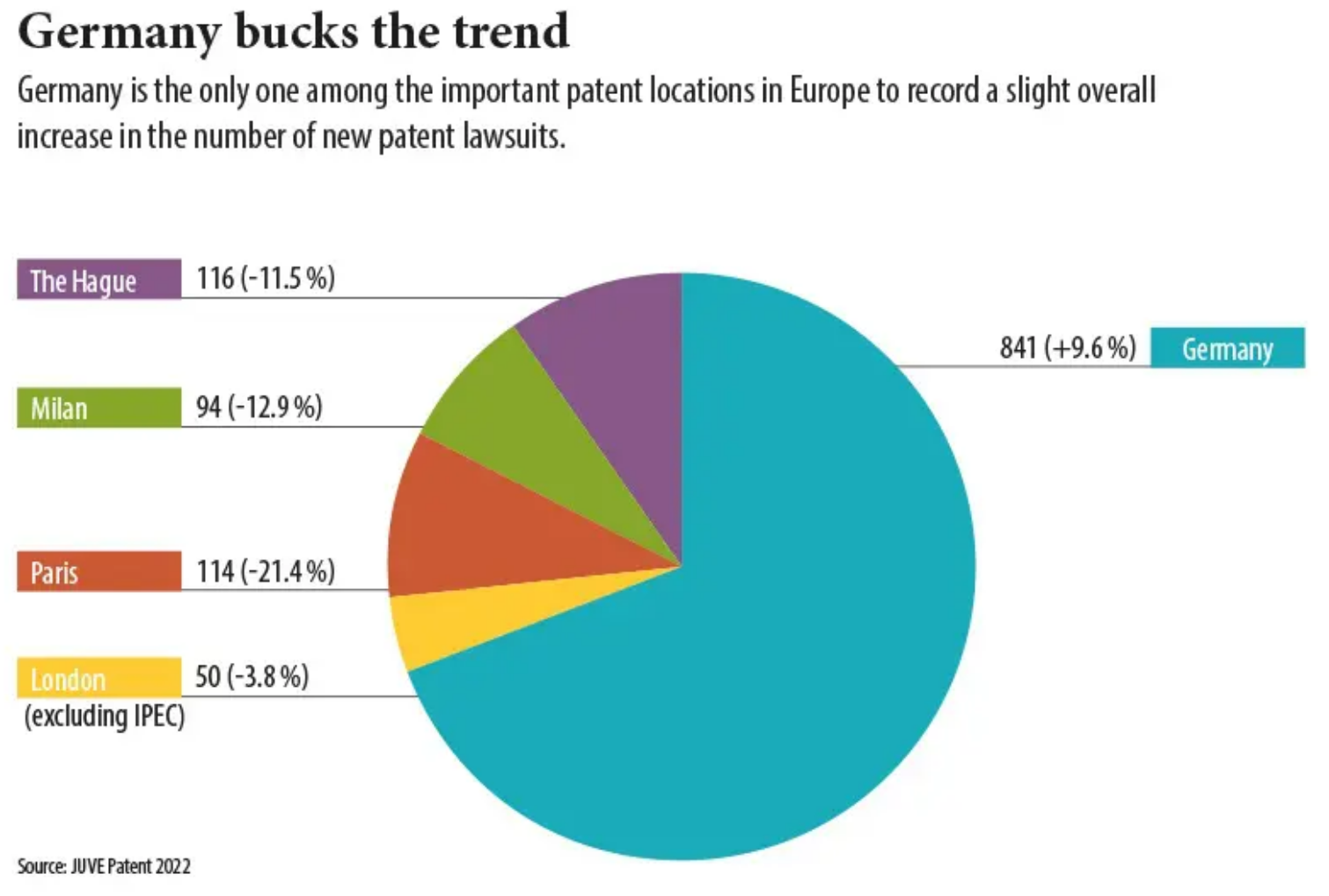
The UPC effect
Some lawyers hope the UPC will have a harmonising effect. One lawyer from a major international law firm says, “Competition could become counterproductive in the UPC. But at the moment it strengthens Germany as a patent location. So we lawyers can play to the strengths of the different courts, depending on the technology.”
Others argue that competition among courts also drives progress. The Munich Procedure, for example, is said to have ensured that proceedings are structured more efficiently at the other courts beside Munich. Only recently, the Düsseldorf patent chambers put its previous practice to the test. It announced a plan to systemise proceedings at all three first-instance chambers.
In any case, the German patent courts’ measures seem to have taken effect. Unlike the rest of Europe, case numbers have risen. In London, Paris, Milan and The Hague, on the other hand, as in previous years, parties filed fewer lawsuits.
Source: juve-patent.com
Editor: IPR Daily-Rene
- I also said the two sentence
- Also you can enter 140words
 TOP IPR U.S. Lawyers 10 & Firms 10 Selection Officially Launched by IPR Daily
TOP IPR U.S. Lawyers 10 & Firms 10 Selection Officially Launched by IPR Daily WIPO Global Innovation Index 2025: China Enters Top 10
WIPO Global Innovation Index 2025: China Enters Top 10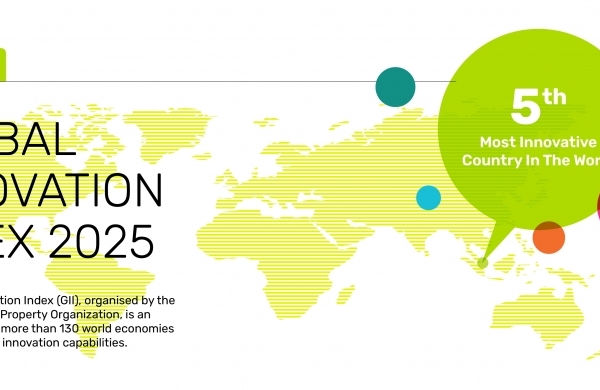 Singapore ranks 5th in the 2025 Global Innovation Index; climbed two spots in Innovation Outputs
Singapore ranks 5th in the 2025 Global Innovation Index; climbed two spots in Innovation Outputs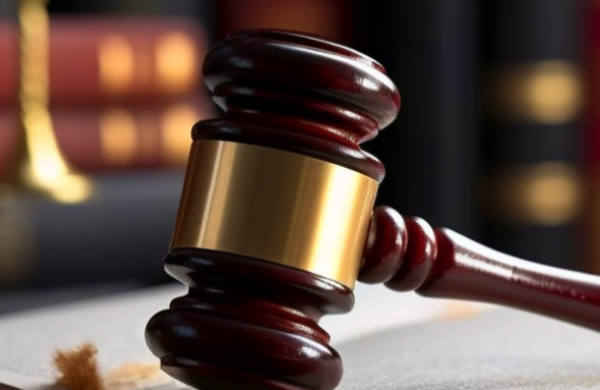 Federal Circuit lacks jurisdiction over award that doesn’t raise issue of patent law
Federal Circuit lacks jurisdiction over award that doesn’t raise issue of patent law


